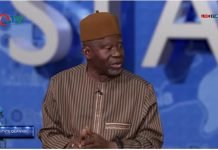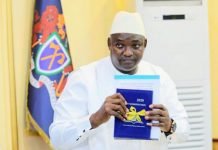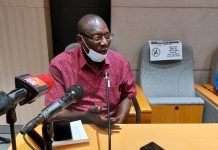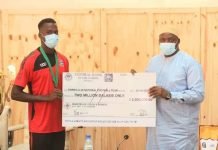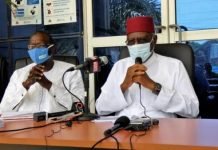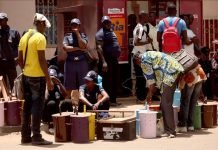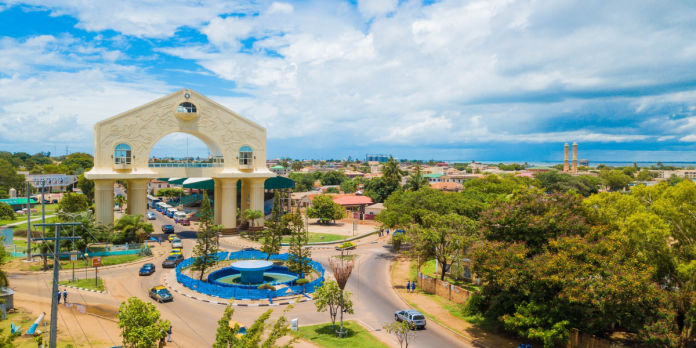
By Banna Sabally
If you are a non-Gambian who wants to live and work in The Gambia, you will need a residence permit (also called residency permit or residential permit) to do so. Such a permit may grant non-citizens the right to live in The Gambia temporarily or permanently.
A residence permit is a legal or official document that allows you to live in The Gambia as stipulated in Gambian immigration laws. In The Gambia, residency status is granted for a number of reasons, including but not limited to work (expatriate, humanitarian services etc); studies (education); medical tourism; and investments among others.
According to section 10 (2) of the Immigration Act, 1965 (amended in 2004), a residential permit issued to an individual shall indicate whether the permit is for residence only or for residence and employment. However, the issueance of a residence only permit is subject to the fact that one has sufficient means to live in The Gambia without gainful employment.
Types of Residential Permits
Subject to pending security sector reforms, curently, there are 3 categories of residential permits issued by The Gambia Immigration Department. These include types A, B, and C:
Type A: Is is for residence purpose only and it is issued mainly to retired foreign citizens and international students.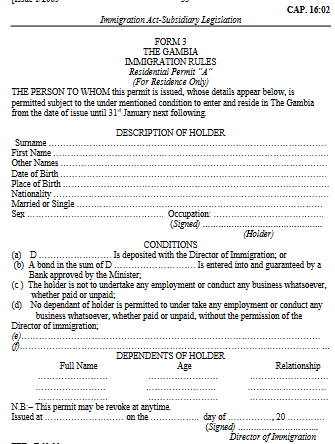
Type B: Is for residence and employment purposes. Citizens of the Economic Community of West African States (ECOWAS) and other foreign nationals who are skilled workers are issued with this type of residence permit.
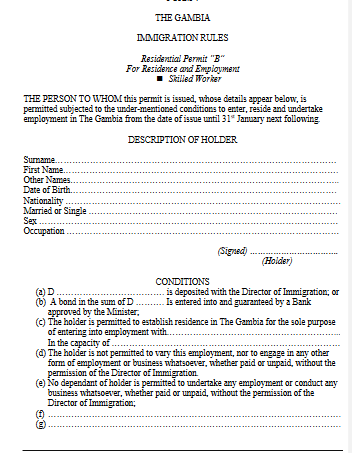
Type C: This residential permit is also for employment purposes and is issued to unskilled workers, especially those from ECOWAS member states.
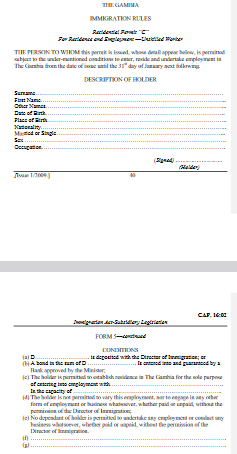
Application process and documents required
Like most African countries, when you enter The Gambia, you are permitted to stay for up to 90 days. But if you intend to extend your stay in the country after the initial 90 days, you must apply for a residential permit to avoid being arrested by the law enforcement agencies.
Required documents
According to Global Citizens, a migration consultancy firm, non-Gambians wanting to applying for a residential permit are expected to produce the following documents for ensure an issuance of a residential permit.
- A signed and valid passport with a minimum of two blank pages and a validity of at least six months
- A completed and signed application form
- A recent passport photo
- A certificate of character (criminal record check)
- A letter of responsibility from an employer in the Republic of Gambia stating your purpose of travel, evidence of financial support for the applicant during your stay in Gambia, and business references
- A medical document testifying the applicant is vaccinated against yellow fever, meningitis, and malaria before traveling to the Republic Of The Gambia.
After completing the various application forms, and gathering all the above documents, applicants should submit them to a Gambian Embassy or to The Gambia Immigration Department in Banjul and await approval.
How much is a resident permit in The Gambia?
The fees for residential permits in The Gambia vary depending on the permit type and the stay duration applied by an individual. Effective January 2024, the government through the Ministry of Finance and Economic Affairs increased in immigration fees for non-Gambians.
However, citizens of Mauritania, the Republic of Guinea, Mali, and Senegal are exempted by law from paying for the resident permit.
The fees indicated below must be paid in the currency used in The Gambia, that is, the ‘Gambian Dalasi’.
- The ECOWAS permit Type B increased from D1, 850 to D2, 500
- The Type C permit increased from D3, 100 to D5, 000
- The Alien ID card increased from D1, 500 to D2, 500
- An Entry Visa now costs D7, 000, and entry clearance is also increasing to D, 7000
- The naturalization and registration of ECOWAS nationals, currently at D5000 will increase to D25, 000
- For Non-ECOWAS nationals, naturalization and registration will increase from D15, 000 to D75, 000
Residential permits are renewed annually.
